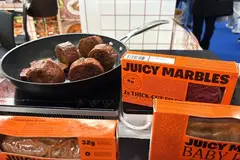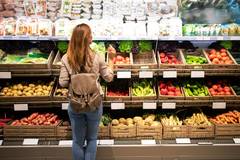Beneo boosts Vietnam’s sustainable rice production with AI and farmer training collaboration
Beneo has launched a three-year sustainable rice farming project in Vietnam. Launched in collaboration with international NGO Rikolto and climate technology firm CarbonFarm, the initiative addresses methane emissions and water usage challenges in the region’s rice industry.
Vietnam, a major rice exporter, relies on rice for economic stability and food security. However, inefficient water use, excessive fertilizers, and rice residue burning lead to soil degradation, biodiversity loss, and increased greenhouse gas (GHG) emissions.
The project, funded by the Government of Flanders, will promote efficient water management, reduced fertilizer use, and sustainable farming practices, to reduce GHG emissions by nearly 50% and minimize water usage by 30% without sacrificing yield.
Beneo will develop the market for Sustainable Rice Platform (SRP)-certified rice ingredients, Rikolto will lead farmer training, and CarbonFarm will deploy digital and satellite tools for data collection, sustainability assessments, and project validation.
The move aims to encourage the transition to “sustainable, climate-resilient rice cultivation,” in Vietnam, Roland Vanhoegaerden, operations managing director for Specialty Rice Ingredients at Beneo, tells Food Ingredients First.

 The partnership will create additional incentives for farmers to cultivate sustainable rice, says Vanhoegaerden (Image credit: JanLocus).“By training local farmers on sustainable and climate-resilient agricultural practices in line with the SRP standards and developing the market for SRP-certified rice ingredients, the partnership will help address global challenges through innovative solutions.”
The partnership will create additional incentives for farmers to cultivate sustainable rice, says Vanhoegaerden (Image credit: JanLocus).“By training local farmers on sustainable and climate-resilient agricultural practices in line with the SRP standards and developing the market for SRP-certified rice ingredients, the partnership will help address global challenges through innovative solutions.”
He explains that the partnership will scale an innovative value chain market model, connecting small-scale farmers to markets and creating additional incentives for cultivating sustainable rice.
“At the same time, successful business cases will be documented to inspire other farmers and cooperatives and encourage the adoption of sustainable practices.”
Tapping farmer training and AI
The joint project will train at least 1,000 farmers in Vietnam’s Mekong Delta as of summer 2025, including demonstration fields to showcase practical applications of sustainable rice farming, says Vanhoegaerden.
He believes the training will help farmers transition to more climate-resilient farming practices. “This is key, given that rice cultivation practices account for around 10% of anthropogenic methane emissions and more than a third of irrigation water worldwide.”
Paris-based climate-tech start-up CarbonFarm will contribute to the project through its satellite technology and AI to “remotely verify” the adoption of sustainable rice cultivation practices, measure emission reductions, and monitor water savings, notes Vanhoegaerden.
“This approach eliminates the need for costly field inspections and enables scalable, accurate, and transparent MRV (Measurement, Reporting, and Verification) across diverse geographies.”
 CarbonFarm will use digital and satellite tools to support data collection in rice cultivation.
CarbonFarm will use digital and satellite tools to support data collection in rice cultivation.
Advancing sustainable rice production
After training the farmers in Vietnam, Beneo’s production site in Wijgmaal, Belgium, will process the SRP-certified rice into high-quality starch, flour, and protein ingredients for the food and pet food industries.
“Beneo aims to process at least 10,000 metric tons of sustainably grown rice throughout the three-year project. The approach aims to scale up sustainable rice production by equipping cooperatives to further assist rice farmers in the future,” Vanhoegaerden concludes.
The first rice volumes are expected to be available in autumn 2025.
















